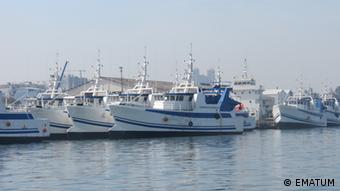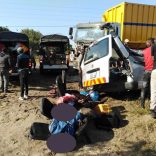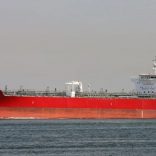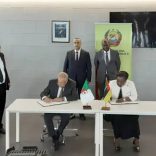Mozambique: 10 Chinese detained in possession of firearms in Niassa
The difficult fight against police corruption in Nampula

DW / Nampula Police motorcycle
More than 10 police officers were charged with extortion in Mozambique’s northern Nampula province in September alone. The police recognize the problem and say they are addressing it. Drivers admit their participation but blame the economic crisis.
Police corruption has increased in Mozambique recently, particularly in Nampula, say motorists who claim to be the major victims on the province’s roads.
Many of them are professional drivers transporting people and goods on both short and long distance routes.
Donaldo Paulo has been a public transport driver for more than five years. He tells DW-Africa that he is worried about the increase in corruption in recent years, especially on city and provincial roads.
“Even if you present all possible documents, they will find an excuse to keep your documents, threaten to prevent you from driving and other things that are not legal and we, out of fear, end up bribing them,” he says.
Blame the crisis
Paulo blames the economic and financial crisis that Mozambique has been experiencing since the beginning of 2015, with the discoveries of the so-called hidden debts causing donors to withdraw support from the country, as the main reason for the increase in police extortion and corruption.
“It is because of the hunger, because of the crisis. Because we already know that our country is facing difficulties that affect almost all sectors, and people are in revolt in their respective sectors and, with this revolt, it is the population that suffers. In this case us, the drivers,” he explains.
Paulo says corruption will never end, despite the efforts and promises of the government.
“It will be very difficult to end corruption, unless you review the constitution so that drivers know the laws and can fight against corruption. Because the [police] agent, when he realises that you do not know [the traffic] laws, takes advantage,” he explains.

Drivers also contribute
Albino Alexandre is another professional driver. He’s been on the road for more than eight years. Carrying passengers and cargo is his only source of income. Like Paulo, Albino is saddened by the wave of corruption on public roads, but he splits the blame between the drivers and the Traffic Police officers.
“We also try to corrupt the police. There are police who do not ask for anything, but we put money in the documents and sometimes he does not resist. Corruption on the roads – there’s no way of stopping it.”
This harsh reality coexists with the many appeals and anti-corruption commitments from almost every level of government. Our interviewees, however, want concrete improvements, not beautiful speeches and strategies.
Police incite denunciations

Nampula police spokesman Zacarias Nacute admits the involvement of its agents in corruption, and asks motorists to report the officers involved.
“The police are exemplary and very forceful in the face of indiscipline and all individuals who are indicted in criminal acts, after their involvement being proven, are held criminally and disciplinarily accountable. We need to maintain integrity in the performance of the police function,” he said.
Last September alone, at least 10 traffic and criminal investigation police officers were prosecuted for extortion, some of them caught red-handed. At the moment, criminal and disciplinary processes are underway, said Francisco Baúque, spokesman for the Provincial Anti-Corruption Office in Nampula.
“What we want is for them to be held accountable. Everything is at the discretion of the judge. If caught red-handed, they rarely escape conviction. When we accuse them of crimes, we tell the institutions to initiate disciplinary proceedings and we do not leave them there,” he says.
Baúque said that his institution would not tolerate corruption and asked the population to continue to report any instances.













Leave a Reply
Be the First to Comment!
You must be logged in to post a comment.
You must be logged in to post a comment.